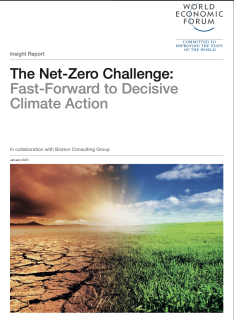
In 2015, world leaders met in Paris and agreed to limit a global temperature rise by the end of the century to well below 2°C and to pursue efforts to limit the temperature increase even further to 1.5°C. In the past decade, however, emissions have continued to increase at a rate of 1.5% per annum. A reduction of approximately 3-6% per annum between now and 2030 is needed to limit global warming to 1.5-2°C.
Progress on climate action to date has been limited. On the government side, while 121 countries have now committed to be carbon neutral by 2050, they account for less than 25% of emissions. None of these countries are among the top five emitters, and few, in spite of the commitment, have enacted policies that are robust enough to produce the desired effects. On the corporate side, only a minority of companies fully disclose their emissions. Even fewer have emissions targets or are in the process of making reductions in line with the Paris Agreement trajectory. And while investors have begun to recognise the importance of assessing climate-related risks, liabilities and opportunities, much of their day-to-day decision- making continues to be dominated by an emphasis on short- term performance. In light of this global inertia, public pressure and global activism have surged in recent years, especially among the youth and in Western countries. However, public education on the threat of climate change and related climate action is still insufficient to make this a global phenomenon.
The coming decade will determine whether humanity retains a fighting chance to limit warming to 1.5°C or even 2°C. The later action is taken, the more dire our position will become. The technologies for a low-carbon transformation are largely available, the barriers to action are vastly overstated and the consequences of inaction are well known. Climate action is still too often perceived as a cost or a trade-off with other priorities. In light of the facts, it should be viewed as an opportunity for businesses, countries and individuals to create an advantage in building a better, more sustainable world.
